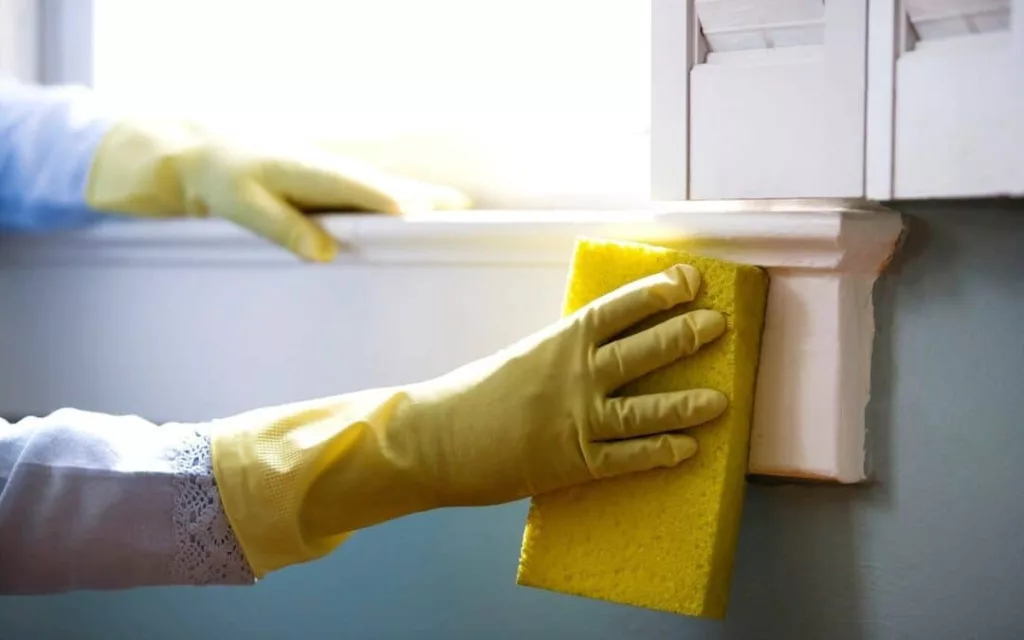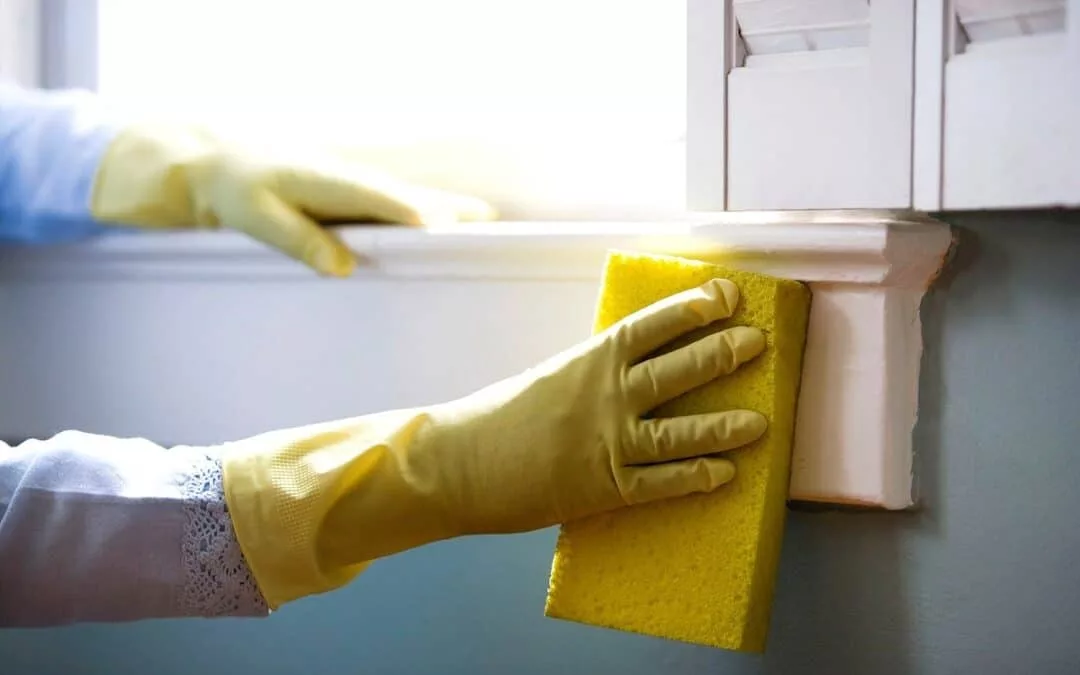If you have mold or want mold prevention tips for your home, give us a call and we can help: 805-360-4046. We are open 24/7.
Introduction:
Mold can be a homeowner’s worst nightmare, not only posing potential health risks but also significantly impacting property values. In the first paragraph, Mold growth in a home or building can have severe consequences, including decreased property values, costly repairs, and potential legal liabilities. Understanding the risks and taking proactive measures to prevent and address mold issues is crucial for homeowners and real estate investors alike.

Table of Contents
The Hidden Dangers of Mold
Mold is a type of fungus that thrives in damp and humid environments, often found in areas with water damage, leaks, or poor ventilation. While some mold species are relatively harmless, others can produce toxic substances known as mycotoxins, which can cause severe health problems when inhaled or ingested. Common symptoms associated with mold exposure include respiratory issues, allergic reactions, headaches, and even neurological disorders in severe cases.
Beyond the health risks, mold can also cause significant structural damage to a property. As mold grows and spreads, it can weaken building materials, including drywall, insulation, and even wooden framing. Left unchecked, mold infestations can lead to costly repairs and potential structural failures, further diminishing a property’s value.
At 805 Property Restoration our team is ready to combat any mold problems you might have.
The Impact of Mold on Property Values
When it comes to property values, mold can be a significant deterrent for potential buyers. According to a study by the University of Connecticut, homes with mold issues can experience a 25% to 50% decrease in value compared to similar properties without mold problems. This substantial reduction in value is primarily due to the perceived health risks associated with mold exposure and the costly remediation process required to address the issue.
Mold infestations can also have legal implications for homeowners and sellers. In many states, sellers are required to disclose any known mold problems or past remediation efforts. Failure to disclose such information can result in lawsuits from buyers who later discover mold issues, leading to additional legal expenses and potential damages.
Furthermore, if a property has a history of mold problems, it can be challenging to obtain financing or insurance coverage. Lenders and insurance companies may view properties with mold issues as higher risk investments, making it more difficult for buyers to secure mortgages or adequate coverage.
Identifying Mold Issues During Home Inspections
For homebuyers, identifying potential mold issues during the home inspection process is crucial. Experienced home inspectors are trained to recognize signs of mold growth, such as musty odors, visible growth on surfaces, and water stains or discoloration. They may also use specialized equipment, such as moisture meters and infrared cameras, to detect hidden moisture sources that could lead to future mold growth.
If a home inspection reveals mold issues, it’s essential for buyers to negotiate with the sellers for remediation or adjust the purchase price accordingly. Failing to address mold problems before finalizing a sale can lead to costly repairs and potential health risks down the line.
The Cost of Mold Remediation
Mold remediation is a complex and often expensive process that requires specialized equipment, protective gear, and professional expertise. The cost of mold remediation can vary widely depending on the extent of the infestation, the affected areas, and the type of materials that need to be removed or treated.
According to HomeAdvisor, the average cost of mold remediation ranges from $500 to $6,000, with larger infestations costing upwards of $10,000 or more. In addition to the direct costs of remediation, homeowners may also need to factor in the cost of temporary relocation, replacement of damaged materials, and potential loss of property value.
Preventing Mold Growth and Protecting Property Values
While addressing existing mold issues is crucial, prevention is the best strategy for protecting property values and avoiding costly remediation. Here are some key steps homeowners can take to prevent mold growth:
- Address Moisture Issues: Mold thrives in damp environments, so it’s essential to promptly address any water leaks, excessive humidity, or condensation problems. Regularly inspecting plumbing, roofing, and appliances for potential leaks can help prevent moisture buildup.
- Improve Ventilation: Proper ventilation is critical for controlling moisture levels and preventing mold growth. Installing exhaust fans in bathrooms and kitchens, and using dehumidifiers in damp areas can help regulate indoor humidity.
- Clean and Dry Quickly: In the event of water damage or flooding, it’s crucial to act quickly to dry out affected areas and materials. Removing excess moisture within 24-48 hours can significantly reduce the risk of mold growth.
- Use Mold-Resistant Materials: When renovating or building, consider using mold-resistant materials like moisture-resistant drywall, tile, or solid surface materials in high-moisture areas like bathrooms and basements.
- Regular Inspections and Maintenance: Conducting regular inspections for signs of moisture or mold growth, and performing routine maintenance tasks like cleaning gutters and checking for leaks, can help identify and address potential issues before they escalate.
By taking proactive measures to prevent mold growth, homeowners can not only protect their property values but also create a healthier living environment for themselves and their families.
Legal Considerations and Disclosure Requirements
As mentioned earlier, many states have specific disclosure requirements when it comes to mold issues in real estate transactions. Homeowners and sellers who fail to disclose known mold problems or past remediation efforts can face legal consequences, including lawsuits from buyers and potential fines or penalties.
It’s essential for homeowners and real estate professionals to familiarize themselves with the disclosure laws and regulations in their specific state or jurisdiction. Consulting with a qualified real estate attorney can help ensure compliance and mitigate potential legal risks.
Conclusion
Mold can have a significant impact on property values, posing both health risks and potential legal liabilities for homeowners and real estate investors. By understanding the dangers of mold, identifying potential issues during home inspections, and taking proactive measures to prevent and address mold growth, homeowners can protect their investments and maintain the value of their properties.
Investing in professional mold remediation services and implementing preventive strategies can not only safeguard property values but also create a healthier living environment for occupants. Ultimately, addressing mold issues promptly and transparently can help homeowners and sellers avoid costly repairs, legal complications, and diminished property values.
Short Permalink: /mold-impact-property-values/
Meta Description: Discover how mold can significantly impact property values and learn strategies to prevent and address mold issues to protect your investment.
